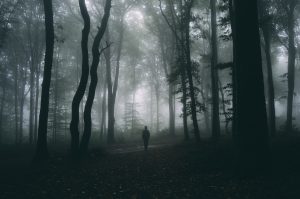Mystery Writers Tradition
Mystery Writers of the 21st century have been following in the footsteps of some of the world’s best writers, period. That’s because plotting the complicated threads of a mystery and weaving those threads together while keeping the reader guessing until the end is indeed a highly developed skill.
Crime fiction, which generally describes a story about a fictionalized crime, only began to be taken seriously as a genre and read popularly around 1900, although some well-known names wrote popular, genre-creating crime fiction in the 1800s. Writers worldwide, including Steen Steensen Blicher, Edgar Allen Poe, Wilkie Collins, and Emile Gaboriau, published crime novels that were crucial in developing the genre of crime fiction. This genre can be broken down into several subgenres, including courtroom drama, legal thrillers, and detective fiction (the classic whodunit).
The characters of Sherlock Holmes and his sidekick Dr. Watson dreamed up in the brilliant mind of Sir Arthur Conan Doyle, broke the genre wide open and moved it forward leaps and bounds in sophistication and characterization.
Mystery Writers Draw on Experience
And of course, Dame Agatha Christie brought the lofty big-city crime novel down to village size, right into the unsuspecting residents’ exact streets and retreats.
Mystery Writers draw on the whole experience of the genre from its earliest days to the latest crime thriller to get ideas for their twists on a classic plot. They succeed in coming up with original material because when a writer writes from his or her specific point of view, and their heart, writing that is bold and original will always emerge.
For example, the new mystery novel entitled “Secrets in the Ice” by Rick Gangraw, tells the story of a couple looking forward to a romantic winter getaway in a quiet cabin in the Upper Michigan Peninsula, only to have all the locals’ eyes turned on them when a body turns up in a frozen lake in the small town. The couple, Paul and Lisa, don’t wait for the small police department to start sniffing around after a second frozen body is found, a local who has gone missing. Instead, they begin investigating on their own.
Mystery Writers Who Write Books
This novel is an excellent example of a psychological suspense novel, a subgenre of mystery writing. Mystery Writers who write these types of books are fascinated about the interaction between people and events, the possible causes of and reasons for actions, including murder, and the complicated unwinding of an eerie, unsettling plot that leaves the reader squirming until the last page and thinking about the book for long afterward.
Horror Writer Stephen King writes books that function much as those of famous Mystery Writers. “Carrie,” “The Shining,” and “The Stand” are all examples of psychological suspense, as is the new book “Secrets in the Ice.”
Mystery Writers are Respected
As Paul and Lisa delve into their investigation, they discover that there is an unsolved, 24-year-old murder that happened in the same lake, and they listen to the townspeople whisper about how it is the ghosts of those long-ago murdered that are committing the murders now, to take revenge.
Mystery Writers have a long, respected genre in which to work, and “Secrets in the Ice” takes its place in that same mystery genre. So turn down all the lights, except the one by your favorite reading chair, and dive into Paul and Lisa’s story.


